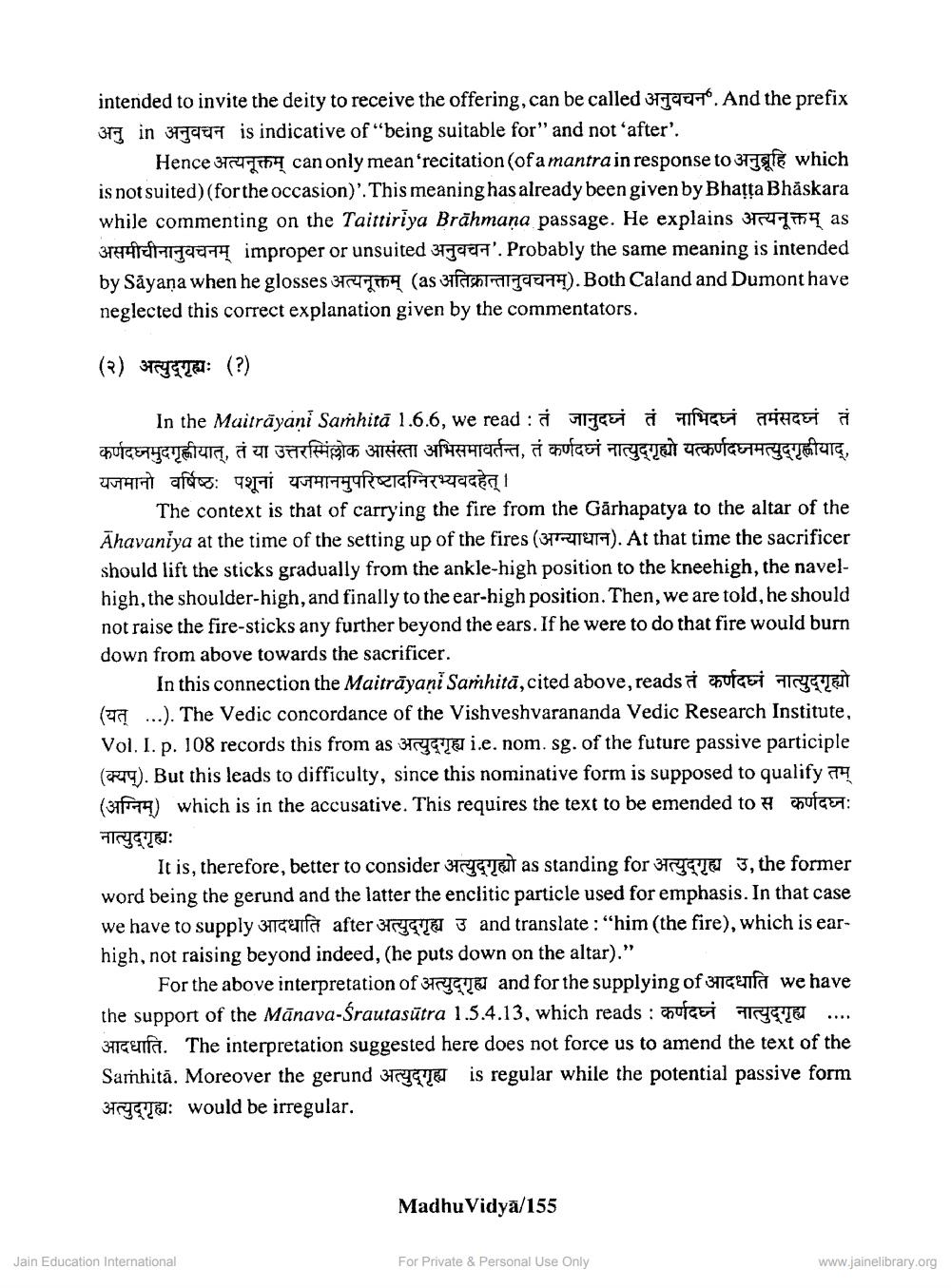________________
intended to invite the deity to receive the offering, can be called 3. And the prefix arg in argue is indicative of "being suitable for" and not "after".
Hence Sea can only mean recitation (of a mantra in response to 3 which is not suited) (for the occasion)". This meaning has already been given by Bhatta Bhaskara while commenting on the Taittiriya Brāhmaṇa passage. He explains as असमीचीनानुवचनम् improper or unsuited अनुवचन Probably the same meaning is intended by Sayana when he glosses अत्यनूक्तम् (as अतिक्रान्तानुवचनम् ). Both Caland and Dumont have neglected this correct explanation given by the commentators.
(२) अत्युद्गृह्यः (?)
In the Maitrayani Samhita 1.6.6, we read: esi à enfuerit कर्जदघ्नमुदगृह्णीयात् तं या उत्तरस्मिोक आसंस्ता अभिसमावर्तन्त तं कर्णदनं नात्युद्गृह्यो यत्कर्णदघ्नमत्युद्गृह्णीयाद्, यजमानो वर्षिष्ठः पशूनां यजमानमुपरिष्टादग्निरभ्यवदहेत् ।
The context is that of carrying the fire from the Garhapatya to the altar of the Ahavaniya at the time of the setting up of the fires (3). At that time the sacrificer should lift the sticks gradually from the ankle-high position to the kneehigh, the navelhigh, the shoulder-high, and finally to the ear-high position. Then, we are told, he should not raise the fire-sticks any further beyond the ears. If he were to do that fire would burn down from above towards the sacrificer.
In this connection the Maitrayani Samhita, cited above, reads afgeven (a). The Vedic concordance of the Vishveshvarananda Vedic Research Institute, Vol. I. p. 108 records this from as egg i.e. nom. sg. of the future passive participle (4). But this leads to difficulty, since this nominative form is supposed to qualify (अग्निम् ) which is in the accusative. This requires the text to be emended to स कर्णदघ्नः नात्युद्गृह्यः
It is, therefore, better to consider age as standing for 3, the former word being the gerund and the latter the enclitic particle used for emphasis. In that case we have to supply smurfar after orgy and translate: "him (the fire), which is ear
high, not raising beyond indeed, (he puts down on the altar)."
For the above interpretation of age and for the supplying of unfar we have the support of the Manava-Srautasutra 1.5.4.13, which reads: fai amegye कर्णदघ्नं नात्युद्गृह्य Suma. The interpretation suggested here does not force us to amend the text of the Samhita. Moreover the gerund arge is regular while the potential passive form
3rga: would be irregular.
Jain Education International
MadhuVidya/155
For Private & Personal Use Only
.....
www.jainelibrary.org




